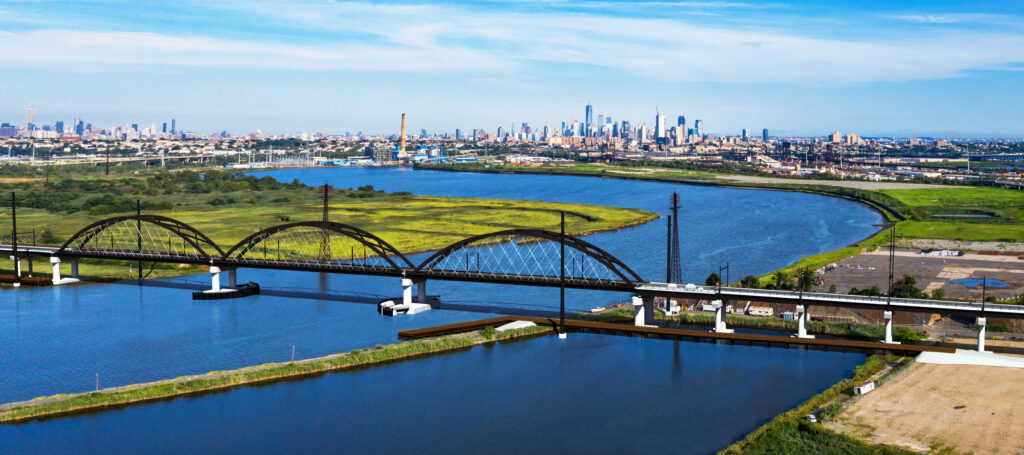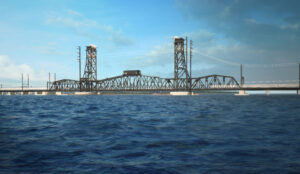NJ TRANSIT Advances Critical Infrastructure Projects Throughout The State (Sponsored Content)

$4 Billion Allocated to Capital Projects Aimed at Improving Service and Reliability
Not even the pandemic could stop NJ TRANSIT’s massive initiative to advance some of its largest capital projects. The agency is focusing its attention on projects that will stimulate post-COVID economic growth and improve infrastructure.
While other mass transit agencies throughout the United States reduced or stopped their capital projects and plans when COVID-19 struck, NJ TRANSIT pushed forward and committed billions of dollars, as well as countless hours and manpower on the projects that they feel will have the most real and significant positive impact for their customers.
In 2017, NJ TRANSIT had $60 million in hard money contracts out on the street. In the last three years alone, the agency has increased that to $4 billion in more than 100 projects encompassing all facets of NJ TRANSIT service, including rail, bus, Access Link, and light rail that will drastically improve overall service.
The Portal North Bridge, Long Slip Fill and Rail Enhancement, and Raritan River Bridge projects are just some of the many NJ TRANSIT capital projects that the agency continues to forge ahead with. Long term investments in infrastructure will help NJ TRANSIT improve the customer experience, by incorporating sustainability and resilience into the project designs.
NJ TRANSIT’s most ambitious capital project is the highly anticipated $1.8 billion Portal North Bridge replacement project which is expected to receive its construction award later this year. The area surrounding the bridge is an integral link in the highly transited zone between Newark Penn Station and Penn Station New York.
The more than 100-year-old original structure is known to cause severe delays to the roughly 200,000 rail passengers that rode over it before the pandemic when the bridge would malfunction while in the process of opening or closing for maritime traffic.
The modern replacement bridge will rise over 50 feet above the river so that maritime traffic can easily pass underneath the new high-level structure therefore foregoing any chance of complications and eliminating delays.
Another project that will alleviate congestion along NJ TRANSIT’s busiest zones is the $195 million Long Slip Fill and Rail Enhancement project in Hoboken, which itself is a crucial element of the larger Hoboken Redevelopment project which will address many of the state of good repair and resiliency challenges which the Hoboken Terminal faces as it supports rail, bus and light rail customers, while providing access to PATH trains and ferries to and from New York City.
The Long Slip Fill and Rail Enhancement project is separated into two phases, the first of which includes filling the existing canal. The second phase will see the construction of six new tracks with high level platforms over the filled canal.
The Long Slip Canal is adjacent to the Hoboken Terminal. The one-third mile long, 100-foot wide canal that has been inactive for 40 years. Superstorm Sandy’s storm surge caused the canal to overflow resulting in significant flood damage to both the passenger and yard facilities at the Hoboken Terminal.
After the surge, the Hoboken Terminal, and several tracks were rendered temporarily out of service. These brief closures crippled rail capacity at this critical transit hub.
The extra tracks will be constructed above flood elevation and provide emergency capacity in the event multiple main track outages are incurred, such as following an extreme weather event. The project will also provide opportunities for increasing capacity for rail, bus, light rail, and ferry service.
Another significant bridge replacement project that will help build resiliency in extreme weather  situations is the Raritan River Bridge Replacement. The $600 million project will replace the over a century-old Raritan River Bridge which became submerged and suffered extreme damage by Hurricane Sandy. The new two track vertical lift bridge will be more resilient and include additional vertical clearance above flood elevation.
situations is the Raritan River Bridge Replacement. The $600 million project will replace the over a century-old Raritan River Bridge which became submerged and suffered extreme damage by Hurricane Sandy. The new two track vertical lift bridge will be more resilient and include additional vertical clearance above flood elevation.
The upgrades will ensure more reliable and efficient rail operations during both day-to-day and extreme weather events which will promote continuity of service during and following extreme weather events.
Through its dedication to advancing these capital projects, NJ TRANSIT proves that as New Jersey grows and evolves, so does NJ TRANSIT.
This is sponsored content from NJ Transit








Leave a Reply